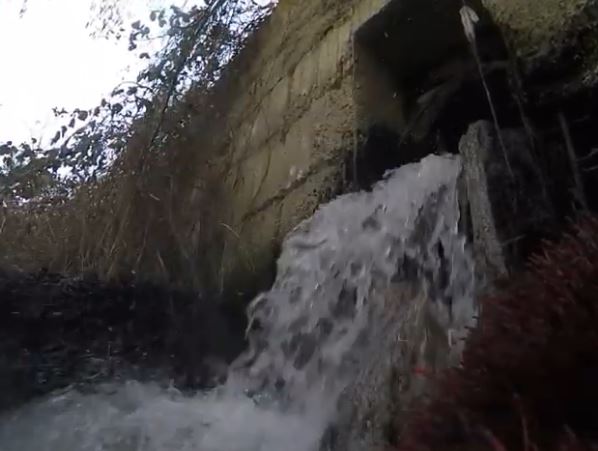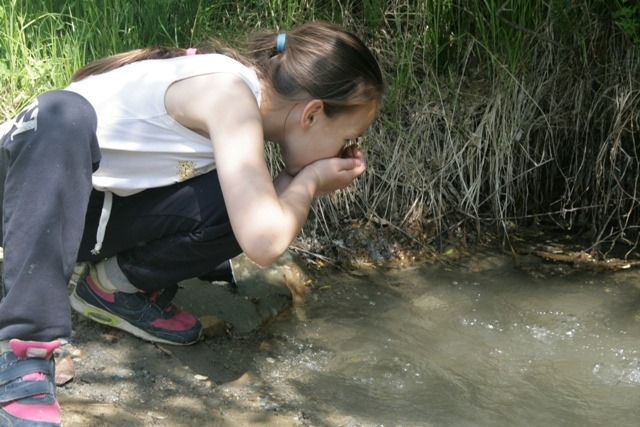Op-ed: what threatens the environment in South Ossetia
What threatens the ecology of South Ossetia
What threatens the ecology of South Ossetia the most? Alan Parastaev, a journalist, blogger and entrepreneur from South Ossetia, shares his opinion on this.
“I decided to write about environmental problems in South Ossetia without resorting to the opinion of experts, without trying to get comments from government officials, using at most what has already been published in the media or announced on TV.
Therefore, this material mainly reflects how society reacts to environmental pollution. I will try to convey the degree of people’s concern about the ecological state of nature and the opinions that exist in South Ossetia. And at the same time, show the level of public awareness on environmental issues.
Rivers
The oldest and most painful problem is the state of the rivers, and first of all, the main water artery – Liakhva (Leuakhi).
We call our river holy and the place where the city’s youth were brought up. Thanks to the well-organized work of city utilities, there are noticeably fewer citizens who prefer to throw out their garbage in plastic bags going down to the bank of the river to dispose of their trash.
Do you know how some of them respond to criticism?
“And so what, let our garbage float to Georgia, they need it.” A kind of trash revenge or waste attack.
Although, in fact, all this cannot be carried off to Georgia, no matter how impetuous the Leakhvi is. Garbage settles on the bottom after a few tens of meters, and does not swim to any ‘enemy territory’, and if something turns out to be floating, it settles on the nets placed at the intersection of the river with the border, and if it gives anyone trouble, then the border guards.

But the discharge of sewage into the rivers is still a problem. It is a fact that rural houses along the river are often not equipped with sewerage systems and septic tanks.
Even in Tskhinval this is the case. For almost a year, environmental activists trumpeted on social media about a half-meter diameter pipe, which, in front of everyone crossing the river on the “new bridge”, spewed a turbid thick fetid liquid right into the water.
Measures were taken, and people connecting their sewers to city stormwater pipes were punished with fines and public censure.
In fact, there are sewage treatment plants in Tskhinval, the purchase and installation of which cost more than 600 million rubles (about 7.9 million dollars).
Advanced equipment according to European standards and production was installed. Sewage coming here from all over the city through the sewer network undergoes several stages of processing, and at the exit no longer pose a threat to nature and to people, respectively.
Gravel is the enemy
The second most important enemy of the ecology of the river and the ecologists of the Republic are numerous enterprises for the production of gravel, so-called crushers, which are located along almost the entire coast of the Liakhvi.
Gravel and other derivatives of river stone are certainly necessary for construction and roads. I remember how at the first stage of the implementation of the program to rebuild South Ossetia after the 2008 war, gravel was transported across the pass from North Ossetia.
And then, too, indignation was heard: money is spent on transportation, we have all these inert materials, jobs are being lost. Now, gravel is being mined in South Ossetia, and another problem has appeared, according to the assurances of environmentalists, much more serious than the leakage of finances.
Because of the works, water from the river can leak out. The mountains are full of caves, faults and there are concerns that “the whole river will go underground.”
And in general, the excavation of the river stone violates the ecosystem that has been created for hundreds of years, from which fish, aquatic insects, reptiles and amphibians, and algae have disappeared in the river. In support of the above, I will give one example from recent history – Abkhazia.
On the eve of the Sochi Olympics, environmentalists, with the support of the public, convinced the leadership of the Republic of Abkhazia that the extraction of inert materials from the bottom of rivers and the coastal zone would harm nature, in particular the spawning of the Black Sea salmon.
And no gravel was supplied from Abkhazia for the construction of Olympic facilities.

Hunting
Honestly, hunting seems to me like a small complex of big men. Most of the people I know who are sick of hunting and obsessed with killing a beautiful animal, turning it into a bloody carcass lying in the trunk of a car, these are people who are successful, often wealthy.
Shooting living creatures without experiencing a shortage of food is nothing more than a complex. With the proliferation of automatic weapons in South Ossetia, after numerous wars, only the very lazy do not go hunting.
What caused so many jackals and wolves near settlements? I’m afraid this is due to the shooting by bipedal hunters of animals that four-legged hunters feed on.
Terms, place names, opinions and publication ideas do not necessarily coincide with those of JAMnews or its individual employees. JAMnews reserves the right to remove comments on posts that are deemed offensive, threatening, violent or otherwise ethically unacceptable.


















